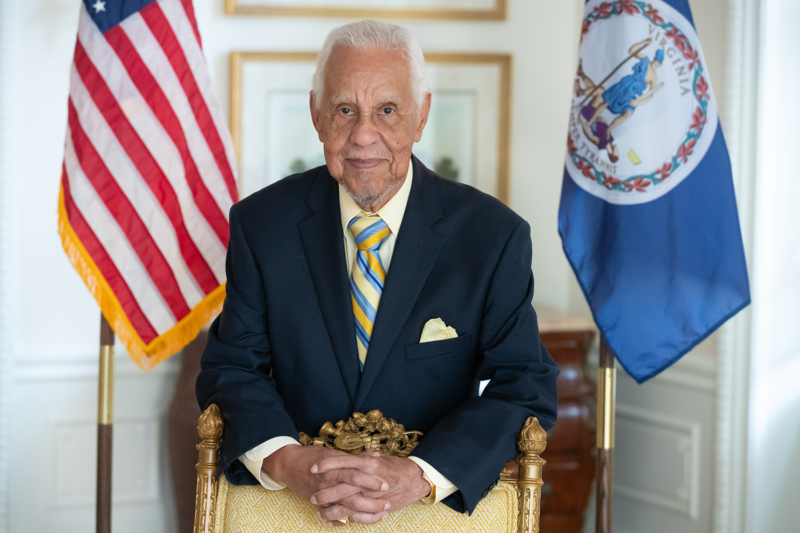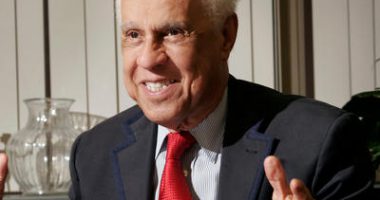The acronym HBCUs is used to reference colleges that were available to educate Negroes during the years of legal segregation in America. Though most of these schools did not meet the standard definition of a university, they were nonetheless so referenced. A classic example exists right here in Virginia’s capital.
The University of Richmond met the standard definition, Virginia Union University (VUU) did not. The University of Richmond had several schools, VUU, at that time, had a school of religion and has always been so identified. Most HBCUs were chartered like VUU and required to state that they were private in order to comply with segregation. This classification was and still is used to deny state funding. The excuse was made by political leaders saying their constitutions forbade financial support. Unfortunately, it is still being used as an excuse for doing little, if anything, to fund HBCUs in Virginia.
I was able to convince Attorney General Jason Miyares to write an official clarifying opinion elucidating that the state can provide financial support to these so-called “private” institutions. Last week, the United States Department of Agriculture and the United States Department of Education sent letters to governors across the country, detailing the estimated national $13 billion funding shortfall to land-grant HBCU institutions over the past three decades. Governor Youngkin was notified that Virginia’s funding shortages to HBCUs during this time totaled nearly $278 million.
When we speak of generational wealth for higher education, the 2023 Goldman Sachs report, “Historically Black, Historically Underfunded,” lucidly illustrates the situation. HBCUs account for less than 3% of colleges in the U.S. but bestow 13% of all Black graduates undergraduate degrees and over 20% of Black STEM graduates. The report revealed that “public HBCUs have 54% less in assets per student than public non-HBCUs, while private HBCUs have 79% less than private non-HBCUs.”
The people of Virginia are entitled to hear from this present cadre of “leaders” why the legislature, and the current administration, cannot redress the wrongs of legal discrimination.
Beyond HBCUs, the reverberations of discrimination continue to shadow Virginia’s other colleges and universities. Virginia Commonwealth University is also plagued by extremely high rates of Black faculty turnover, estimated at 150%. A further lack of tenure track positions limits employment security and detracts from recruiting the best professorial candidates. According to a report by the VCU Office of Institutional Equity, Effectiveness and Success, Black students attributed their own retention issues to the lack of Black professors on campus who could relate to their lived experiences. VCU administration has yet to publicly acknowledge, recognize and address this issue.
In 2018, Virginia Commonwealth University employed one white faculty member for every 20 students, with only one Black instructional faculty member for every 225 students, the greatest disparity amongst all faculty backgrounds. In fact, Black faculty made up merely 6.2% of all university professors — only one Black faculty member for every 40 Black students.
VCU must first acknowledge the discrepancy, and then immediately correct. Nothing else is acceptable. Long-term solutions require long-term planning and funding — absent this, equity is unattainable.
In our neighboring state of Maryland, the legislature, led by its Black Caucus, demanded of then Governor Hogan, that his budget directly address the issue, and they were successful.
The VCU L. Douglas Wilder School of Government and Public Affairs will host the 2023 Wilder School Symposium on Thursday, Sept. 28, from 5:00 pm – 6:30 p.m. — to which I commend the exceptional leadership of Wilder School Dean Susan T. Gooden. Entitled “HBCUs and the Absence of Support.” There will be panel discussion with:
- Dr. Bob Holsworth, former Dean of the Wilder School and renown political analyst
- Dr. Nakeina E. Douglas-Glenn, director of the Wilder School Research Institute for Social Equity
- Dr. Wayne A.I. Frederick, 17th President of Howard University
- The Honorable Judge Roger L. Gregory, U.S. Court of Appeals for the Fourth Circuit
- The Honorable Jason Miyares, Attorney General of the Commonwealth of Virginia
The event will take place at the W.E. Singleton Center for the Performing Arts. A reception with light refreshments will begin at 4:30 p.m. The event will also be live-streamed. In-person and virtual registration is strongly encouraged at: bit.ly/sym2023
We will explore the historical, current and future trends shaping the lack of investments in HBCU institutions. This event brings together key leaders to explore a vital discussion. It creates a tremendous opportunity for our students, campus community and the general public to learn firsthand the path to securing an equitable future for HBCUs in Virginia and America.
The majority of all Black doctors, dentists, lawyers, and other professionals came through that stream of HCBUs, like Virginia Union, Virginia State, Hampton, Norfolk State, Howard, Morgan, Lincoln, Morehouse, Spelman, Bethune-Cookman, North Carolina Central, and Bennett, to name some of the more recognized schools.
Without the existence of VUU — currently ranked as the nations’ 39th best HBCU by U.S. News & World Report — I would have not been able to attain a college education. I would never have earned a law degree if Howard University were not there in the nation’s capital.
I will always be eternally grateful for all that has made my life more bountiful because of HBCUs. We must ensure substantive, long-term investments to support their continued efforts.
This is not a Black or partisan issue, but it is critical to address and to make retroactive investments for past shortcomings.
There is a continuing need to educate the people of America about how our nation was built. They must come to know and to appreciate the continuing contributions of HBCUs and to assist and to preserve their heritage and importance to America.
Stay tuned.








